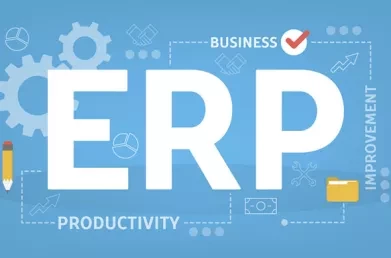Successful Implementation with a part-time team - can it be done?
Having a full-time dedicated team made up of your best people is one of the key success factors for ERP implementations. However, in spite of best intentions, some companies simply do not have the resources to do this. Are these companies destined for failure, or are there some things they can do to deliver a successful implementation with a part-time team?
In an ideal world, every company approaching an ERP implementation would select and free-up the best people from the organisation to work full-time on the ERP project. My colleague, John Donagher includes this as one of the 10 Characteristics of a Successful ERP implementation in his blog. However, the reality is that not all companies can do this – they either do not have a large enough team to start with, or they cannot afford to back-fill for the project duration.
Here are 10 tips that I have picked-up over the years that can help a Project Manager to successfully manage an ERP project implementation even if they do not have a full-time team:
1. Don't Compromise on Team Structure
At the pre-launch stage of the project, carefully consider the required structure of the team without constraining yourself based on resource availability. Then look at how the roles can best be filled, and, if you can, assign someone to each role, taking into account that they will also have another job to do. If the workload is too much, then split the roles so that the responsibilities are spread over a greater number of people. All roles are there for a reason – none should be viewed as a “luxury”, so make sure all responsibilities are covered.
2. Consider External Resources for Specialised Roles
Think about using external resources to fill some of the gaps, particularly some of the technical roles or those where you may not have the required skills in-house. Project Management is a good example here. Although this does incur additional costs, it is possible that having an experienced expert on even a part-time basis will progress the project and will save money in the end.
3. Get Expert Help for Crucial Tasks
Instead of using external resources to fill a particular role for the duration of the project, you could look at getting expert help for some of the crucial project tasks, such as Data Migration or Testing. This means that your part-time team are supplemented at the time-intensive stages of the project by people who have expertise and a proven track record.
4. Assign Subject Matter Experts from the Business
Support part-time Functional Leads by assigning enough Subject Matter Experts from the business to contribute to areas where the Functional Lead might not have a lot of knowledge or to help out during particularly busy periods. It helps when the load is spread as evenly as possible.
5. Use Competency-based Assessments and Team Building
Even if limited employee numbers mean that you do not have the luxury of picking and choosing who you would like to have on the project team, it is still important (and maybe even more important!) to understand the strengths and weaknesses of each team member. Employing competency-based assessments (see Sean Jackson’s blog Best Practise in ERP Project Team Formation) will ensure that you are using an objective and efficient method to discover any potential issues early on in the project. It is also useful to run a structured team building programme as this will help the team to appreciate the contribution that each can make to the overall effort, and will help them be more effective.
6. Get Guidance from the Management Team on Prioritisation
Get clear guidance from the company management team on the rule of thumb to be used when prioritising project versus business tasks and include this in the Project Charter assumptions. There should be a clear and easy escalation process to manage these conflicts and the Project Sponsor has to take overall ownership for balancing the business and project needs.
7. Ensure the Project Plan and Timelines are Realistic
When developing the project plan, be realistic and stretch out the timelines to factor in project team availability and don’t schedule project tasks during periods where team members will be busy with “business as usual” tasks. Take the time to talk to each team member to understand their particular constraints and once the plan is drafted, review it again to make sure that all are happy that the plan is achievable, even if it is challenging.
8. Hold Structured and Tightly Managed Project Team Meetings
Plan to hold project team meetings at a regular time that suits the team so that other activities can be scheduled around that dedicated time. Not having all the people you need at a meeting means that those who do attend are not using their time efficiently, so make it easy for everyone by giving enough notice. Issue the agenda so that everyone comes prepared and then stick to it, ensuring that the meetings begin and end on time. Only invite the people who really need to be there – the project manager can then inform others who may need to know the outcomes and decisions. This involves a lot of preparation on the project manager’s behalf, but it results in the most efficient use of that very scarce resource – time.
9. Keep the Team up-to-date with Clear and Open Communication
Clear communication is always important, but it is even more crucial when team members are working on the project while continuing to do their own job as they don’t have time to keep themselves informed. The project manager has to make sure that the team are kept up to date at all times. The nature of ERP is that a change in one area impacts another, so the sooner all are clear on the status, the less time is wasted. Open and honest communication demonstrates respect and shows that you trust the team, so don’t try to hide things, especially when things are not going so well.
10. Focus on Managing People rather than the 'Project'
When it comes down to it, managing an ERP implementation is really about managing people, and whether people are assigned full-time or part-time, the same basic people management principles apply:
- Make sure each person is clear on what is required from them, and get their commitment to the targets and timelines. Using the Prince2 concept of issuing work packages is a good way to do this on a project.
- Give people the tools they need to do the job: if their computer is not powerful enough, upgrade them; if they need to do some work outside working hours, give them a lap-top.
- Ensure everyone is adequately trained. In some cases, this may be general training such as assertiveness training or presentation skills, rather than just ERP system training.
- Once all of the above are done, trust the team to get on with it, and check in with them to make sure they have the support they need rather than continuously checking that they are up to date on their tasks.
- Encourage and motivate by demonstrating your own commitment to the project and to the project team. Take time to meet each team member one-to-one to make sure you keep in touch with the conflicts and challenges that they are facing, and listen to their suggestions on how things could be improved.
- One of the best ways to alleviate stress and to help people work better together is to have a laugh – it may seem trivial, but making sure that there is time for some fun during team meetings will not only encourage people to attend, but it may also help the team to hold onto their sanity!
This blog piece was written by Ursula Browne, Managing Partner at Lumenia. If you would like further information on ERP Project Management or on any other aspect of ERP please send an e-mail to Ursula Browne.



